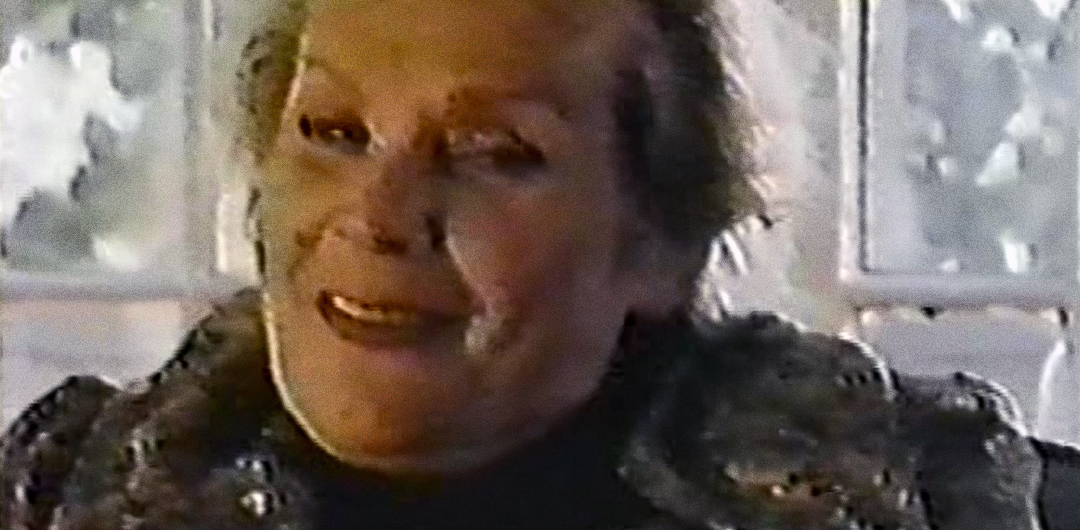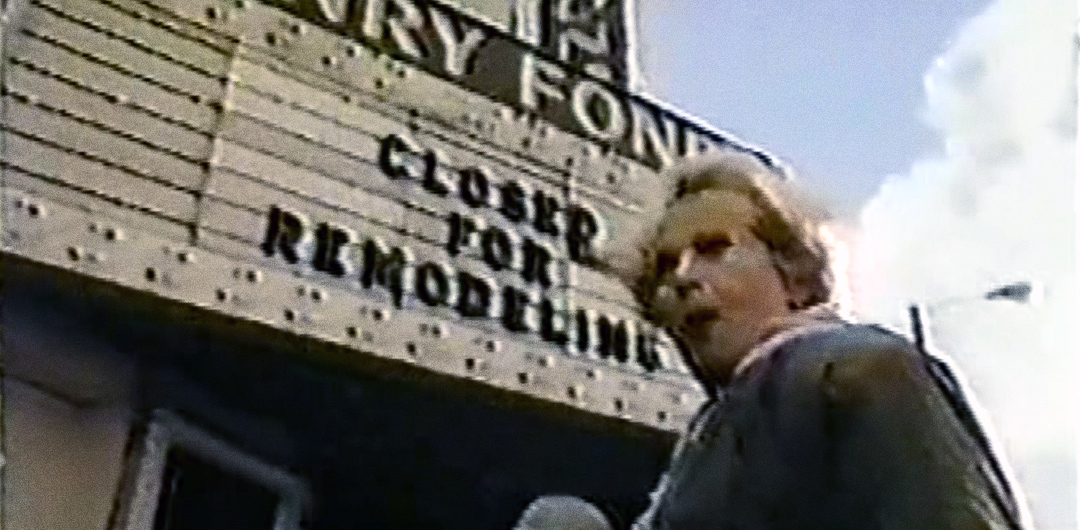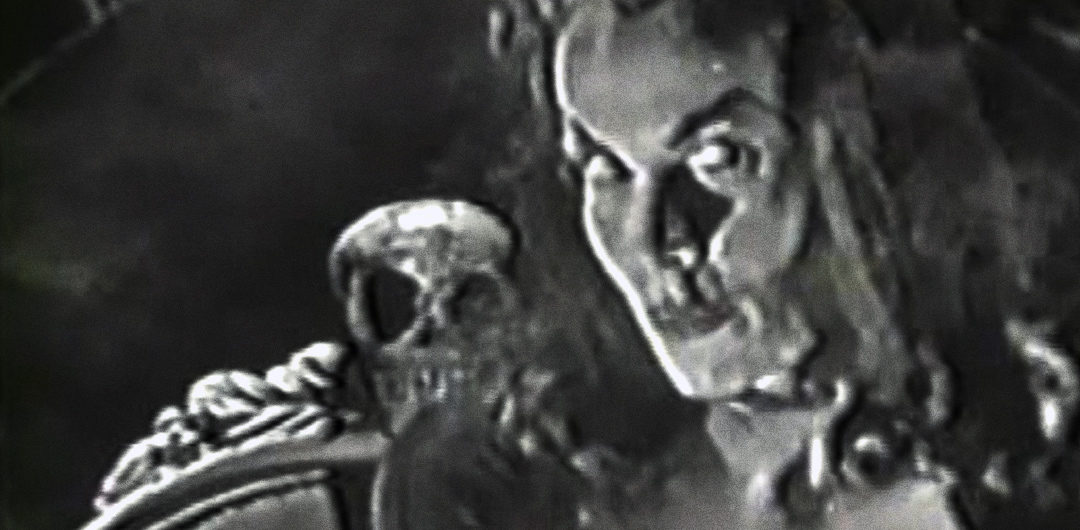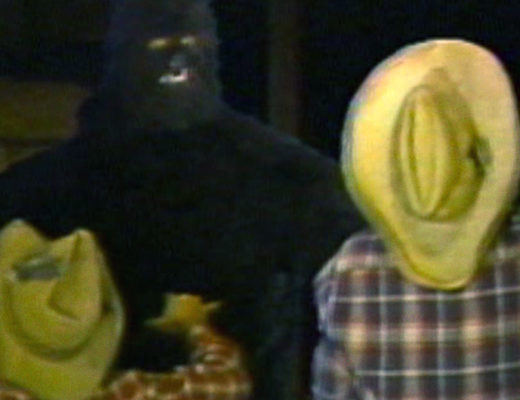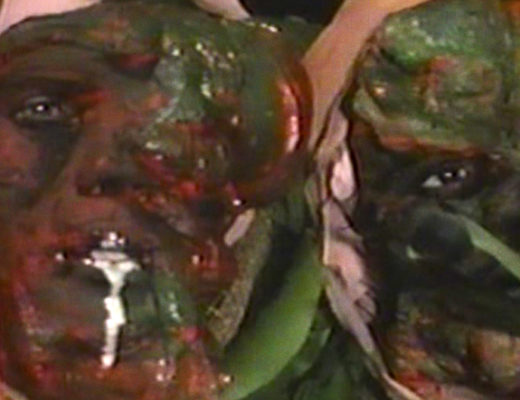Reminiscing about her 1950s escapades in Hollywood, Maila Nurmi (aka Vampira) turns to the camera and says, “Of course, I thought I was from another planet.”
That’s why we love her.
Vampira: About Sex, Death, and Taxes is an obscure Finnish documentary that chronicles the life of Nurmi. As Vampira, she broke ground in 1956 as the very first television horror host. Nurmi lit up Saturday night television sets with her cinched waist on Los Angeles station KABC-TV. Off set, Maila’s life and demeanor perfectly complemented her eerie TV persona, leading to a relationship with James Dean and a starring role in Ed Wood’s Plan 9 From Outer Space before fading off into obscurity. Running just an hour in length, this film takes an equally bizarre approach to telling Maila’s story. It’s like spending an afternoon with your eccentric grandma . . . if she chose to spike the tea with a tab of acid.
This movie tracks Nurmi’s life from her abusive childhood in Finland to her eventual blacklisting in Hollywood and contented existence in the 1990s. The events unfold through a combination of narration, on-camera interviews, artsy dramatizations, vintage public domain clips, and unrelated tangents. So between Nurmi’s living room anecdotes, we witness bondage scenes, slaughterhouse footage, James Dean interview segments, and a truly bizarre centerpiece, where Nurmi acts out some kind of performance art routine. Throughout, Nurmi spouts off juicy quotes (“Three things make the world go ’round: sex, death, and taxes.”). Old Hollywood hotspots are visited. Crazy stalkers masquerade as death-clowns. Things get really confusing towards the end, when the discussion lands on religion and the film Old Dracula. Through it all, Nurmi holds it together as an eccentric lady whose iconographic appearance will always represent a slice of outsider 1950s culture.
Vampira falters a bit more than it succeeds. I’m all for the stream of consciousness approach, but some of the visual content (like the slaughterhouse footage) comes across as completely irrelevant. Definitely a mid-90s calling card. The tarot card transitions mean well, but seem to be an easy out, especially given the subject matter. On the bright side, Maila Nurmi exudes enough mystique to keep things rolling, regardless of director Mika Ripatti’s visual decisions. Ed Wood fiends won’t learn much that isn’t already “in the know” about Vampira from this documentary, but hearing it straight from the source invokes a lingering charm — sometimes sad and creepy, but (almost) never boring.
